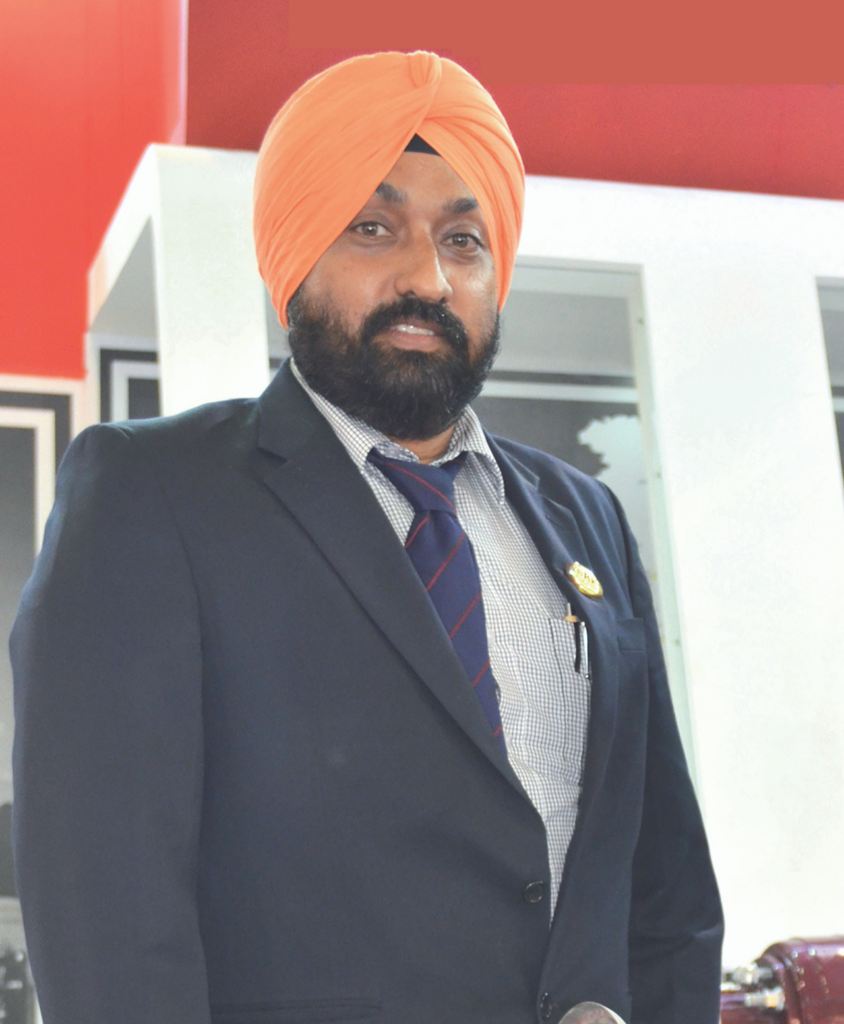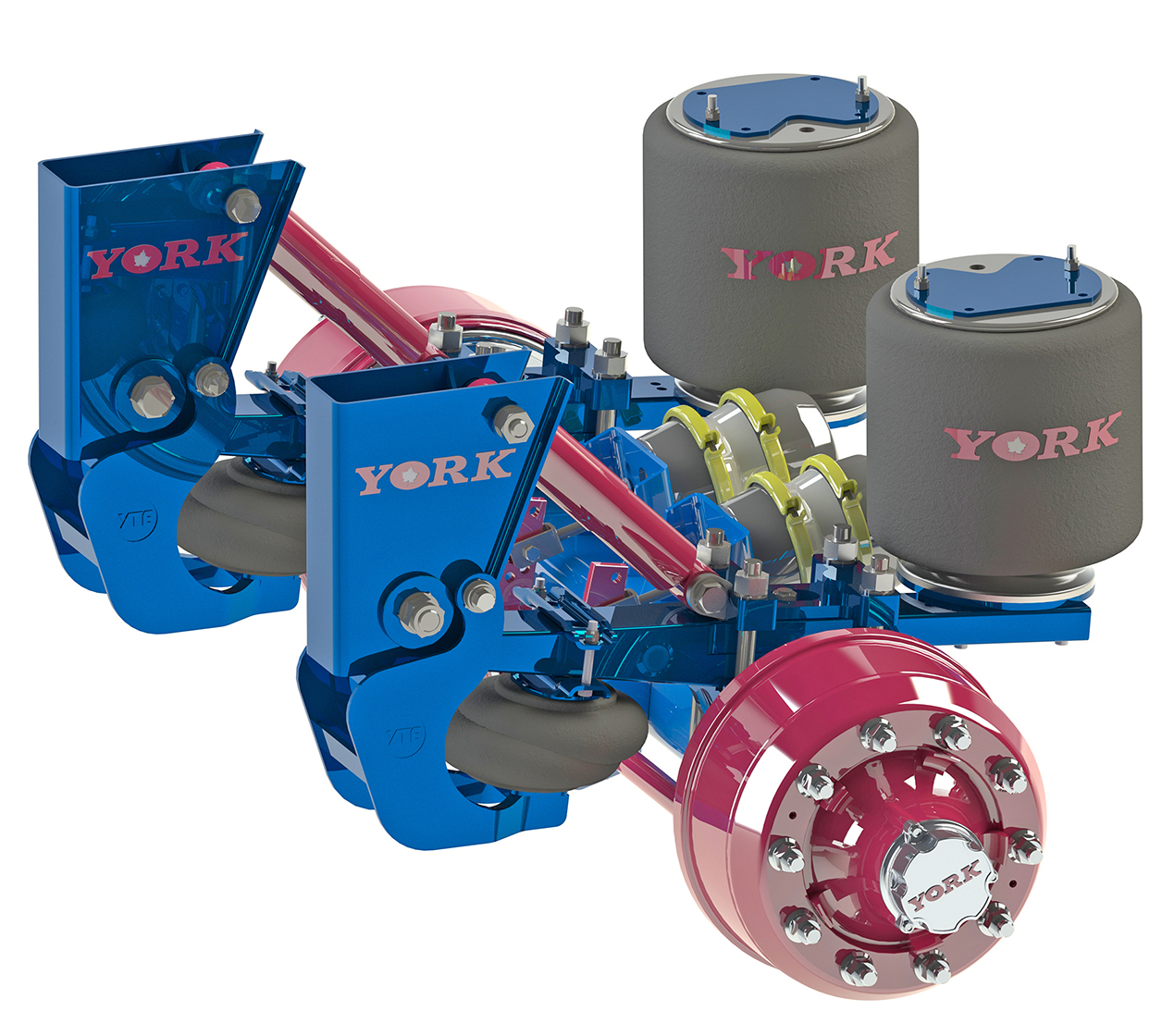Looking Back at FY21
Various factors like new safety and environmental regulations, taxation, liquidity crunch after the NBFC crisis, new axle load regulation, fuel price hikes along with unstable economic conditions have driven the fall in vehicle sales since June 2019, which was further accelerated in 2020 due to the pandemic. Also, factors like regulatory mandate for switching to BS VI engines from April 2020 increased the cost of vehicles while the non-availability of prime movers during the last two months has created hurdles on reviving the growth curve in the commercial vehicle segment. We were almost at 50% of our sales budget during the first six months of FY21 but then sales picked up in the second half.

And now we are expecting to reach very close to the budget target by end of March 2021. Massive investment of the government in the infrastructure sector has helped the early revival of demand in the tip trailer segment. As York Transport Equipment India has more than 90% market share in the tip trailer segment, it helped us to do better in the second half of this financial year. Meanwhile, major steel companies are increasing their steel production capacities and asking fleet operators to expand their fleet size. York Transport Equipment India’s products are the most preferred choice for major fleet operators and this has helped us to improve sales during the ongoing crisis.
Takeaways and Positives
During the pandemic-affected period we faced problems related to import, increase in freight cost, delay in arrivals of vessels, etc. These problems were an eye-opener for all the industries and forced us to think more about indigenisation and reducing dependency on import. The thinking of the customers is changing and they are focussing more on Indian manufactured products, which has improved the acceptability of our products in the market. We have improved our market share from 46% to 63% in the current financial year though our products have become costlier due to massive hike in steel prices.
PLI Scheme, Scrappage Policy
The PLI scheme that seeks to push domestic manufacturing is attracting many investors to India. New manufacturing should begin over the next 24 months which may attract Rs 2-2.7 lakh crore of capital expansion accordingly to an analysis by CRISIL. This will massively increase the demand of trucks and trailers during FY23. The voluntary vehicle scrappage policy is expected to be revealed in full in the coming days. As per this policy, commercial vehicles that are over 15 years old will have to face the test at automated fitness test facilities which will be set up on a public-private partnership (PPP) basis.
Those who fail in this automated test will face substantial penalties and such vehicles could also be impounded. Also, vehicles older than eight years that pass the automated tests will be subjected to a green tax which will see fleet operators shelling out additional 10-25% of road tax at the time of renewal of the vehicle’s fitness certification. We expect this will force fleet operators to scrap their more than 15 years’ old vehicles and subsequently it will generate new requirement of vehicles. However, we can expect the impact of this scheme from FY23 only as implementation of the massive structure required for this scheme will take time.

Plans for Current Year
Recently we have started manufacturing of disc brake axle of 12 tonne capacity in our Pune plant. We have taken orders for 135 disc brake axles from Satrac, Bangalore. These trailers will be supplied for defence requirement. We developed these disc brake axles to meet the specific requirement of the Indian Army as they wanted to keep wheel temperature under control while continuous driving on a downhill gradient for more than 300 to 400 km at a single stretch. Disc brake axles provide consistent braking performance and also keep the temperature in check while running on long downhill gradients. These axles improve the overall safety of a vehicle and improve tyres’ life in hilly terrain and city application where continuous braking is required.
We have also launched 12 tonne capacity air suspension in four different ride heights and heavy duty 14 tonne air suspension in two different ride heights to cover the requirement of all types of trailer segments in India. We are planning to enter into the agriculture trolley segment on a large scale. We had launched 5 tonne and 8 tonne capacity brake axles for agriculture trolleys in 2019. Currently farmers are operating trolleys with un-brake axles which are leading to major accidents on roads. These brake axles will improve the safety of agriculture trolleys and save farmers’ life. Our existing plant capacity is 7,000 axles per month and currently we are running at 70% capacity. Our existing capacity can meet the requirement till FY 2022. We are planning to expand our capacity to 12,000 axles per month in FY 2023.
FY 2022 Outlook
As the demand has almost reached the pre-pandemic level, we are expecting FY22 to do 20-25% better than FY20. As per new axle load norms, fleet operators are getting 7 to 10 tonne extra payload by using air suspensions. It is prompting fleet operators to sell their old fleets and induct new fleets with higher registered payload to make their business proposition viable. We have recently launched 14 tonne capacity air suspension which is in high demand among all trailer segments. We are expecting fleet operators to shift to 52 tonne GCW concept for short wheel base trailers and 55 tonne GCW for long wheel base (40 to 45 feet) trailers gradually and it will generate very high demand for new trailers in FY22.